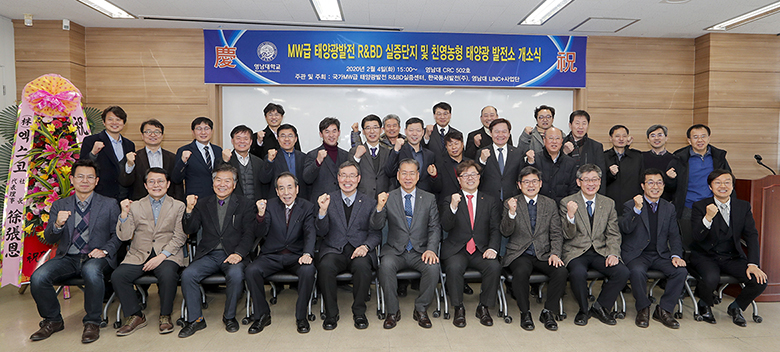YU Becomes Global Hub Research Institute for ‘Solar Power Generation System Standards’ N
No.89223- Writer pr
- Date : 2020.02.14 16:33
- Views : 8144
Increase opportunities for develop solar power generation companies enter foreign markets
Cooperation ‘synergy’ expected for research centers and personnel fostering project team related to solar power at YU
[February 7, 2020]
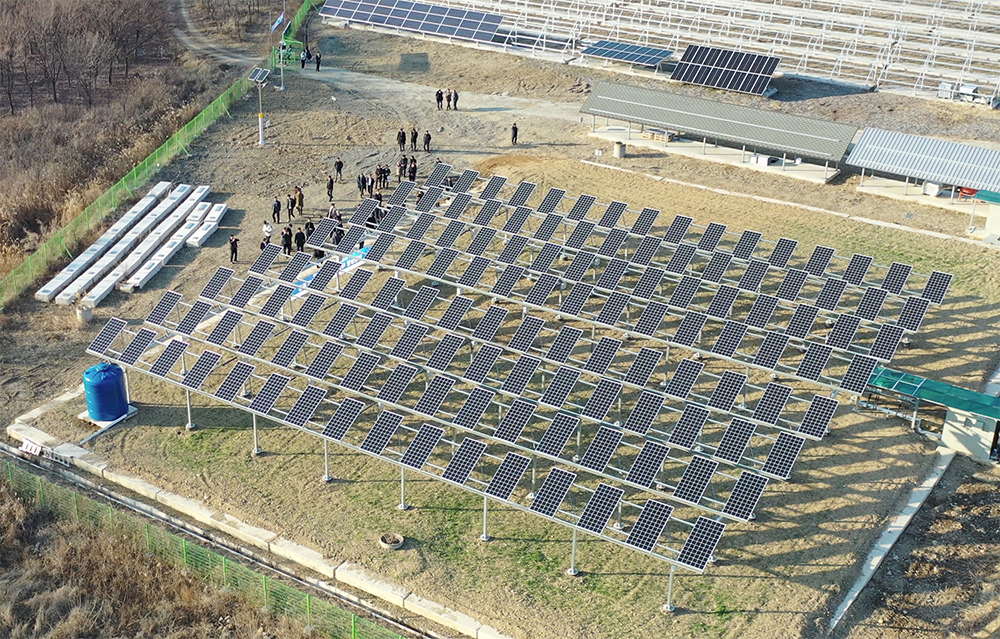
<YU 'MW-grade (Megawatt) solar power generation R&BD testing center'>
YU (President Sur Gil-soo) completed the construction of the MW-grade solar power generation R&BD testing center of the 4th.
The MW-grade solar power generation R&BD testing center was constructed receiving project cost support of approximately 9.1 billion KRW from the Korea Institute of Energy Technology Evaluation and Planning for about 40 months from June 2016 to September 2019. The solar power generation R&BD testing center was installed over an area of 20,5921 square meters at the YU Gyeongsan Campus and it is equipped with world-class standardization design, installation, power production, and system linking infrastructure.
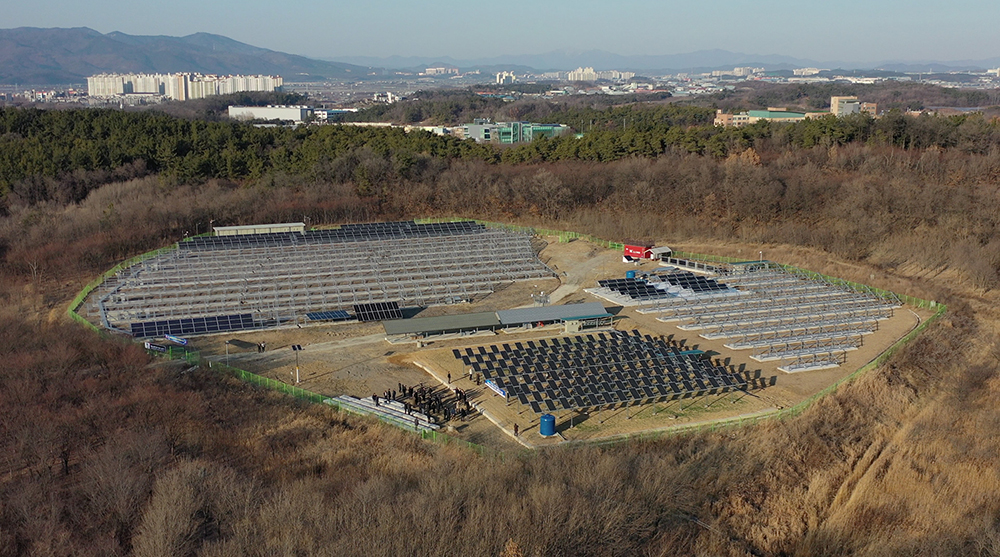
<YU MW-grade solar power generation R&BD testing center (drone photo)>
YU School of Chemical Engineering Professor Jung Jae-hak, who led this project, said, “Solar power generation systems in Korea are being installed by SMEs without standardized certification on the generation system, aside from solar cell modules and inverter certifications.” He added, “With the construction of this center, it has become possible to provide stable and comprehensive standardization plans that guarantee a 20-year life for generation facilities. We will not only outreach the technologies to private sectors, but also have companies install and operate facilities at the center to measure and collect precise world-class climate information and annual generation volume to accredit electric generation track records.”
Currently three domestic companies including Korea East-West Power are receiving tests at the YU MW-grade solar power generation R&BD testing center to receive accreditation of electric generation volume track records. With its full-fledged operation, the YU MW-grade solar power generation R&BD testing center is expected to help resolve issues related to the installation and construction of solar power generators, and for other parts. It is expected to play a big role in long-term stable business investments for consumers who plan to install generators and for financial investors.
Currently three domestic companies including Korea East-West Power are receiving tests at the YU MW-grade solar power generation R&BD testing center to receive accreditation of electric generation volume track records. With its full-fledged operation, the YU MW-grade solar power generation R&BD testing center is expected to help resolve issues related to the installation and construction of solar power generators, and for other parts. It is expected to play a big role in long-term stable business investments for consumers who plan to install generators and for financial investors.
Professor Jung said, “Back when a Korean company tried to enter the power generation business in the US, it had to obtain track records for three years at the Sandia RTC (Regional Test Center under the US Department of Energy to export. This was because there was no track record accreditation institute in Korea. That company had to pay a large sum to obtain track records and had to delay its business for three years” as he explained the background for the construction of the MW-grade solar power generation R&BD testing center
In 2017, Professor Jung held a symposium by inviting leaders of MW-grade solar power generation RTCs from around the world in the second year following the nationally funded project. He aimed at sharing weather and generation volume per country and region, as well as design methods and proposing standardization models by creating a consortium that shares data.
The four institutes of YU, Sandia RTC of the US, Fraunhofer of Germany, and IRESEN of Morocco agreed on an MOU and has jointly operated the ‘PV-CAMPER (Photo Voltaic Collaborative to Advance Multi-climate Performance Energy Research) Consortium’. This consortium holds international conferences every year to discuss standardization plans and it is planning to hold its third conference this year in March in Brazil. The third conference will be joined by England and France, and will exchange mutual track records, certifications and join-research performance with 10 countries including Qatar, Singapore, Brazil and Australia that joined earlier.
The four institutes of YU, Sandia RTC of the US, Fraunhofer of Germany, and IRESEN of Morocco agreed on an MOU and has jointly operated the ‘PV-CAMPER (Photo Voltaic Collaborative to Advance Multi-climate Performance Energy Research) Consortium’. This consortium holds international conferences every year to discuss standardization plans and it is planning to hold its third conference this year in March in Brazil. The third conference will be joined by England and France, and will exchange mutual track records, certifications and join-research performance with 10 countries including Qatar, Singapore, Brazil and Australia that joined earlier.
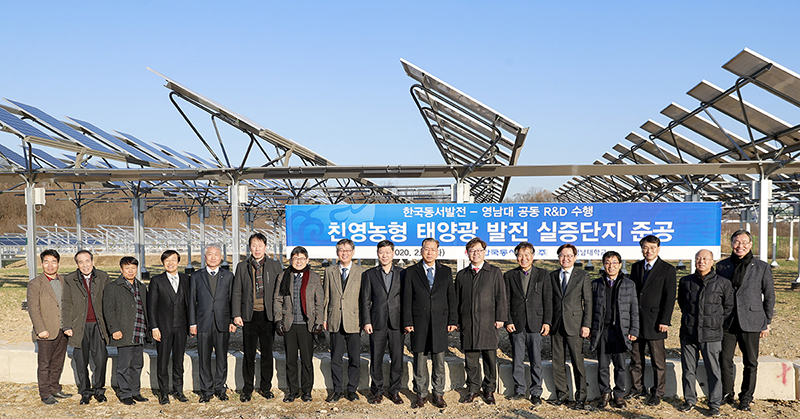
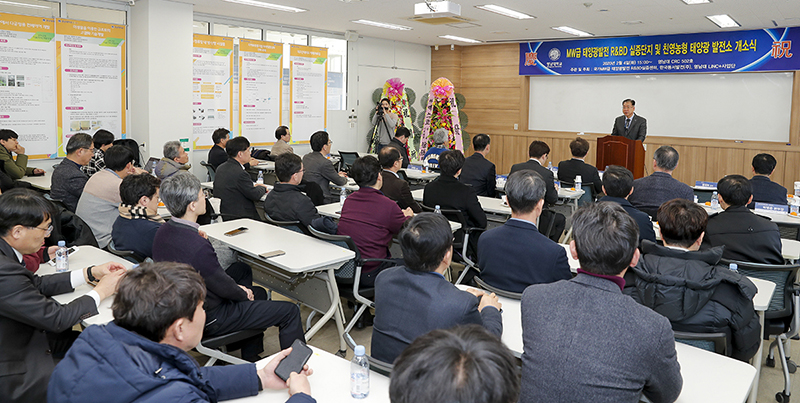
YU already has the Daegu-Gyeongbuk solar cell module regional innovation center, TUV solar power module certification testing center, KOLAS solar module certification testing center, and advanced solar power personnel fostering project team. With the construction of this center, it is expected that it will be able to obtain synergy effects for improving business competitiveness by fostering experts in the relevant sectors, R&D and industry-academic cooperation.
Professor Jung said, “We will be able contribute greatly for domestic solar power generation facility and parts companies to enter foreign markets,” while adding, “If more countries join the RV-CAMPER consortium, the roles and ripple effects of the YU solar power generation R&BD testing center will be upgraded.”
